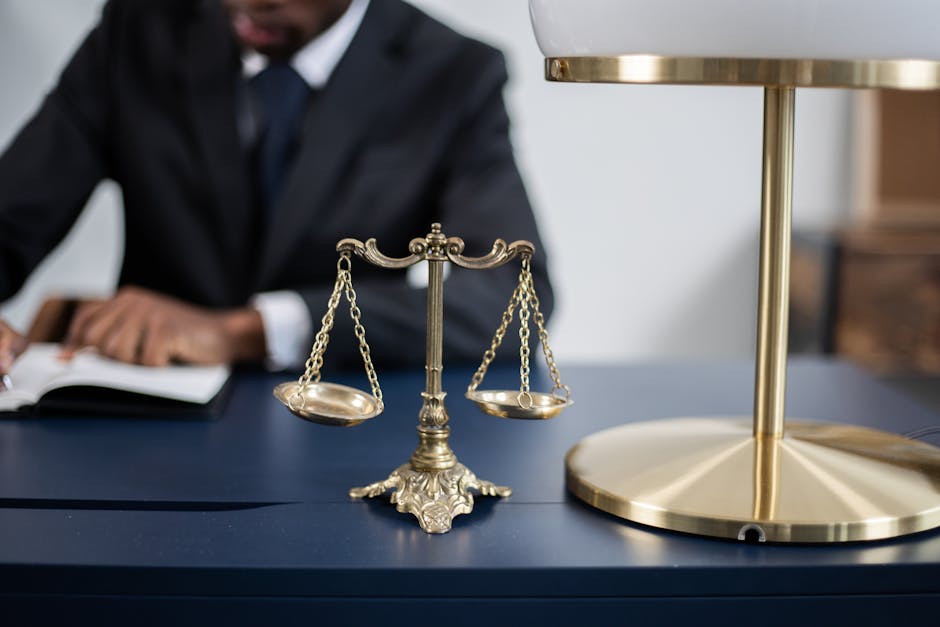Navigating Digital Afterlife: What Happens to Your Online Identity?
As we stride deeper into the digital age, contemplating our online legacy has become a vital conversation. With much of our lives now unfolding on the internet, the question arises: what happens to our digital identity after we take our final bow? As our virtual presence continues to evolve, navigating the legal challenges surrounding digital remains—a complex web of privacy rights, intellectual property, and emotional ramifications—grows all the more crucial. This article will shed light on the contingencies of your online identity after death and offer valuable advice on how to navigate this challenging terrain.
Understanding Digital Remains: An Overview

Your digital identity encompasses a wide array of components, including social media profiles, emails, online banking accounts, and even virtual assets like Bitcoin wallets. Each of these elements contributes to what we call "digital remains." After one's death, these accounts often remain dormant, raising questions about their management and how loved ones can access them.
The concept of digital remains is increasingly pertinent as social media now serves as a platform for personal expression and memorialization. According to a study by the Pew Research Center, over 70% of adults in the U.S. have at least one active social media profile. As millions of people worldwide engage in the digital realm, many find themselves leaving behind a complex web of digital footprints once they pass.
The Importance of Digital Estate Planning

Digital estate planning is essential in ensuring your digital assets are handled according to your wishes after your death. Just as you would draft a will to distribute your physical possessions, a digital estate plan allocates your online assets. This often involves designating a digital executor—someone equipped to manage and distribute your online legacy in accordance with your directives.
Establishing these plans can help mitigate potential family disputes, protect sensitive information, and decide how you want your online presence to be treated long after you're gone. Given that emotional connections tethered to social media exist, many wish their profiles to be preserved as monuments of remembrance. Alternatively, others may prefer their accounts to be deleted.
The Legal Framework Surrounding Digital Assets

Understanding the legalities that govern your digital afterlife is vital. The laws regarding digital property vary widely across jurisdictions and often depend on the specific platform's terms of service. You may think that upon passing, your digital assets naturally transfer to your heirs, but this is not always the case.
For instance, under the U.S. Revised Uniform Fiduciary Access to Digital Assets Act (RUFADAA), executors may be authorized to access a deceased’s digital accounts, assuming they have been provided explicit consent. This law underscores the growing recognition of digital assets and the importance of clearly articulated legal frameworks to handle them efficiently.
As you navigate these legal waters, consider consulting resources like Harvard Law Review to stay apprised of evolving legal landscapes that affect your digital legacy.
Emotional Implications of Digital Afterlife Management

Aside from legal considerations, managing someone's online identity after death involves emotional implications for both families and friends. The nature of online interactions may complicate grieving, as individuals often leave behind a combination of cherished memories and unresolved relationships. Social media platforms allow for a complex relationship with the deceased, where grief intersects with nostalgia, making the administration of digital remains both an emotional and legal challenge.
For example, when a spouse passes, how do you feel about their Facebook profile remaining active? Should it be maintained, transformed into a memorial page, or deleted? Each choice carries emotional weight and can have varying impacts on bereaved family members.
Displaying a loved one's profile can provide solace, yet it may also complicate the healing process. Each individual will navigate their grief uniquely, and understanding the emotional context surrounding these decisions is pivotal.
Preserving or Deleting Your Digital Identity

When preparing for the management of your digital identity after death, it's crucial to consider whether you want your accounts preserved or deleted. Social media platforms like Facebook and Instagram offer options to memorialize accounts, allowing friends and family to share memories on the profile while preventing unauthorized access.
Alternatively, platforms like Google allow you to designate a “legacy contact.” Establishing how your online presence can be handled allows you to leave specific instructions for your loved ones, making the process easier for them.
For deeper insight into the emotional ramifications of digital memorials, refer to articles discussing digital heirs and the management of virtual estates.
Executors and Their Duties in the Digital Realm
A digital executor's role encompasses a variety of responsibilities from managing social media profiles to overseeing digital financial assets like online bank accounts and cryptocurrencies. It is paramount that individuals ensure their chosen executors are technologically savvy and comfortable navigating digital platforms.
In some cases, discerning the specifics of accounts—passwords, safety considerations, and what accounts are critical—can be confusing even for a well-informed executor. Providing clear guidelines, ideally in a digital estate plan, can alleviate future stress and confusion for your heirs.
How to Create a Digital Estate Plan: A Step-by-Step Guide
Creating a digital estate plan can seem daunting, but breaking it down into manageable steps can help:
-
Inventory Your Digital Assets: Start by listing all your online accounts, from social media to banking, along with their passwords and any required recovery information.
-
Choose an Executor: Designate a trusted individual as your digital executor, ensuring they understand your wishes regarding the management of your accounts.
-
Draft a Digital Will: Include instructions for your executor detailing how you want your accounts handled—whether they should be memorialized, deleted, or transferred.
-
Discuss Your Wishes: Have an open conversation with your executor about your digital estate plan. Clarity here is vital for emotional support as well as legal clarity.
-
Review and Update Regularly: Digital assets change over time, as do your preferences. Regularly revisit and update your digital estate plan to keep it current.
Seeking Expert Legal Advice
As digital remains become an increasingly complex aspect of both estate planning and digital rights, seeking expert legal advice is often beneficial. Legal professionals specializing in digital estate planning can provide clarity on your rights and duties, ensuring your decisions are legally binding and respected.
Many estate planning attorneys now offer services that cater to digital assets, helping individuals navigate the evolving landscape without feeling overwhelmed by the intricacies of the law.
For more insights on navigating digital and virtual asset management, check out the guide on the legal landscape of digital assets provided by the American Bar Association.
The Growing Role of Technology in Managing Digital Afterlife
Advancements in technology are shifting the landscape of digital estate management. Software applications exist to help you manage passwords and keep them secure, significantly simplifying the process of access for your executor. Moreover, some startups specialize in digital inheritance services, providing platforms where people can outline their wishes for their digital accounts clearly.
New Policies and Trends in Digital Estate Planning
As the urgency around digital estate planning grows, legislative bodies are beginning to legislate more decisively on this issue. Changes like the proposed updates to the RUFADAA aim to close existing loopholes and provide a framework that respects individuals’ wishes even after death.
Furthermore, the rise of cryptocurrencies and NFTs adds another layer of complexity to digital estate planning, requiring more specialized knowledge regarding how these assets transfer after death.
Trust Matters: Building Trust in Digital Estate Planning
Trust is the cornerstone of successfully navigating the legal challenges surrounding digital remains. Entrusting your executor with your digital legacy requires careful thought about how this individual aligns with your values and wishes. Therefore, developing an excellent working relationship built on trust leads to smoother execution of your posthumous plans.
Ultimately, your goal when creating a digital estate plan should be clarity and peace of mind—knowing that your digital life will be honored according to your wishes will allow you to focus on the present.
Final Thoughts: Your Digital Legacy Matters
As we prepare for an uncertain future, understanding what happens to our digital identities after death becomes an essential part of planning. Through crafting a thoughtful digital estate plan, selecting a trustworthy executor, and understanding the emotional and legal complexities, individuals can ensure their online identities are handled with care and respect. The digital legacy you leave can be a beautiful part of your story, preserving memories for loved ones to cherish.
Don't let the intricacies of digital remains overwhelm you. Embrace this opportunity to shape how your online presence will impact friends and families fulfilling digital inheritance wishes. Start your digital estate plan today, as your digital afterlife is just as important as your physical legacy.



